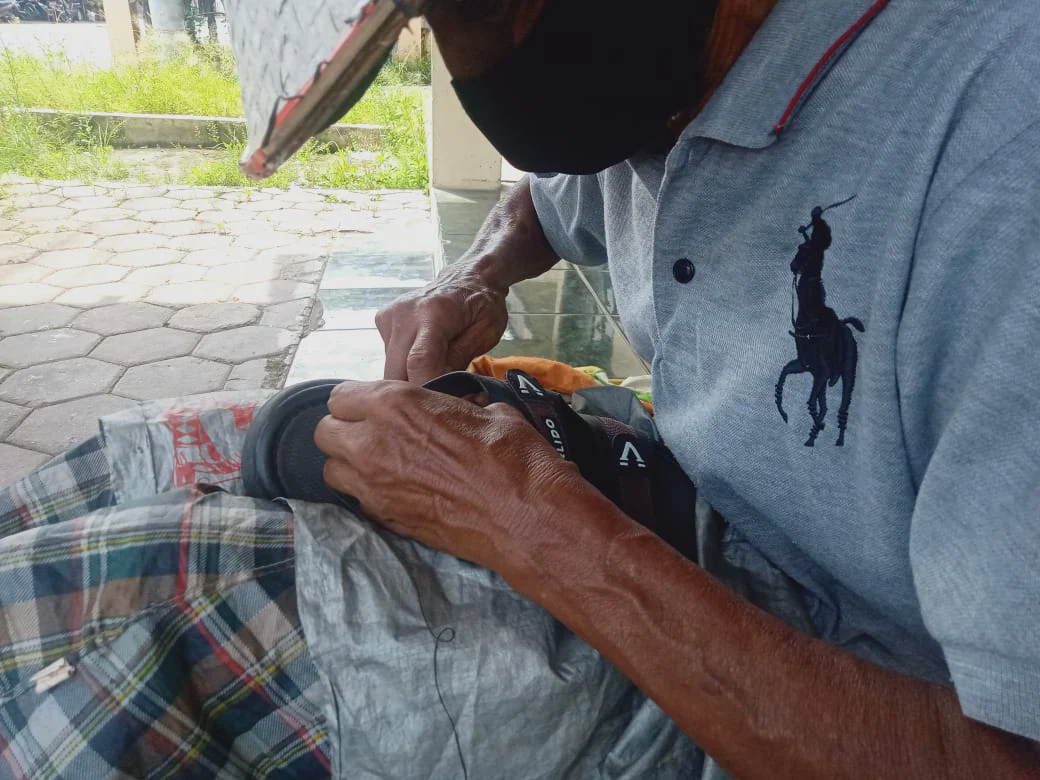71-year-old Mochamad, a traveling cobbler, mends a pair of leather sandals in Magelang, Central Java, Monday (May 3, 2021). | Photo: Sahrudin.
RIDING an old bicycle, Mochamad everyday commutes and battles busy streets of Magelang, Central Java.
The man whose nickname is Pak (Mr) Moch, comes in and out of settlements, goes from one village to another, offering footwear repair services to the local people.
I met Pak Moch on Jalan Senopati, Jurangombo, Magelang Municipality, Monday (May 3, 2021).
The obligation of fasting during the holy month of Ramadan, is no obstacle to the 71-year-old man in doing such physically exhausting activities.
Like many Indonesians, Mochamad or Pak Moch has only one name.
The old man who already has several grandchildren, has been a shoe repairman for over 20 years.
Pak Moch usually leaves his home in Trasan village, Bandongan subdistrict, at around 8 AM, and will return home at 4 or 5 PM.
On his bicycle's carrier, the self-taught cobbler puts a pair of boxes—old, wooden ones that the white paint peels off more than half of the surface.
In the square containers, Pak Moch brings tools and equipment such as knife, hammer, nails, pincers, scissors, shoe brushes and shoe polish, nylon threads, needles and adhesive.
He also stocks rolls of synthetic leather, rubber soling sheets, and other types of soling material.
Beside repairs footwear (replaces old shoe soles and heels, and mends torn slippers), Pak Moch also provides shoe polishing services.
He will need between 30 minutes and approximately one hour to fix broken or torn shoes or sandals, depending on the difficulties.
For the services, he charges from Rp 10,000 to Rp 30,000 (2 USD) for each pair of either men's or women's footwear.
IN MAGELANG, as in many other places of Indonesia, traditional cobbler is an old but still-easy-to-find type of profession.
Like Pak Moch, Itinerant shoe repairmen generally ride bicycles to find individuals who need their shoes to be repaired.
Other types of traditional cobblers work from fixed locations such as kiosks at Pasar Rejowinangun or other traditional markets in Magelang.
Other cobblers run their small businesses at home, and some other work either in the open or in tiny cubicles along street pavements or five-foot-ways.
Due to relatively small income, they are usually not wealthy enough to buy or own large, good studios or shops.
Today’s small scale shoe repairman also has to be a jack-of-all-trades in order to survive and earn extra cash.
A small cobbler tends to be self-employed—sitting for many hours at a work bench providing services to the customers.[sahrudin]
Tags
english corner






